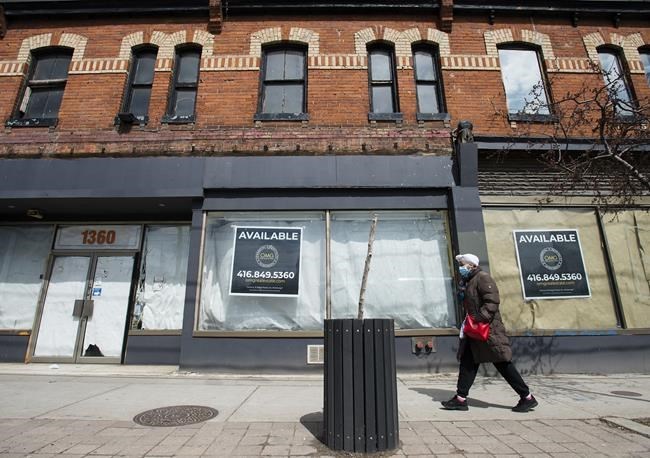TORONTO — Owners of restaurants in Ontario reacted with anger Thursday at news that the province will ban all indoor and outdoor dining service for four weeks as part of an "emergency brake" to control the COVID-19 pandemic.
Restaurateurs said it's unfair that they are unable to serve their customers in person when other businesses are allowed to remain open with restrictions.
"I feel like nobody knows what they're doing. And it's really scary," said Pam Viinikka, co-owner of two restaurants, The Cornerstone and the Log Cabin Tavern, in Kenora in northern Ontario.
"There was no lockdown when we had 100 cases and now they're making us lock down with only 11 and that's just ridiculous to me," she said.
""It doesn't make sense that you can have 300 people in Walmart but you can't have two people in a small business."
She said her restaurants enjoy good community support in terms of takeout and delivery orders but the dining ban will hurt many of her 35 employees and will halt a recent hiring campaign.
The new restrictions are a "kick in the teeth," said Mark Kitching, owner of Waldo's on King in London, Ont., who says he will be laying off many of his 16 employees and throwing out unneeded food.
"My business is booming. Sales are up over 2019, all the staff are back on board, the customers are happy. And now ... although nobody has proven to anybody that restaurants are spreaders, we become the target again," he said.
"It just seems so unfair to the small business owners."
Court Desautels, CEO of the Neighbourhood Group of Companies, which owns four restaurants in Guelph and one in Kitchener, said three of his outlets were scheduled to open their patios on Thursday.
Instead, they are tearing down the big tents they had just erected for the spring season.
He said he had been bringing back laid-off staff and hiring and training new workers after Ontario changed the rules two weeks ago to bump up the maximum number of diners in Guelph from 10 people to 50 people per restaurant and from 50 to 100 in Kitchener eateries.
"It seems we opened the floodgates a little too quickly," he said ruefully.
"It's a big hit. We will be losing money, even with all subsidies in place just because of the high rents we pay in a couple of our locations."
The changes are going to be "devastating" for members of his organization, said Todd Barclay, CEO of Restaurants Canada, who said the province must offer compensation to restaurateurs for money spent over the past two weeks and to cover rent, utilities and other costs for the duration of the lockdown.
"Two weeks ago, medical officers of health were out discussing the fact that outdoor gathering is good for mental health and is a safe way for people to congregate," he said in an interview.
"The lockdown should be across all sectors, because effectively what I'm hearing they're going to do is what's been happening in Toronto for the last six months and it hasn't worked."
The recent easing of rules allowed outdoor dining with physical distancing in the grey zones like Toronto and nearby Peel Region, after months of only allowing takeout and deliveries.
Meanwhile, the Canadian Federation of Independent Business said Thursday it wants all governments to look at alternatives to lockdowns and increased financial support for small businesses as several provinces move to tougher restrictions.
“Small businesses are tired of being a scapegoat for the Ontario government’s lack of planning or foresight," said Ryan Mallough, CFIB director of provincial affairs for Ontario, in a statement.
He said Toronto and Peel have been largely shut down since November while COVID-19 cases rise and fall with thousands of small businesses never seeing a single customer.
CFIB president Dan Kelly says the first two shutdowns were devastating, with one in six businesses considering permanent closure.
The group says a survey found that two thirds of small businesses would consider using COVID-19 rapid tests to remain open.¬Ý
CFIB says Canadian small businesses on average have taken on $170,000 in COVID-19-related debt.¬Ý
It says three quarters of respondents said it will take more than a year to pay off.
By Dan Healing in Calgary.
This report by The Canadian Press was first published April 1, 2021.
The Canadian Press




